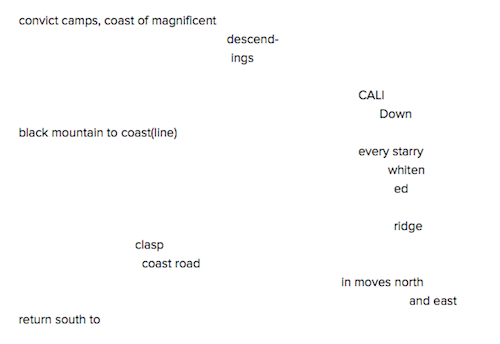It's the Last List, We Promise—But John Yau and Albert Mobilio Have Really Great Taste
Perhaps you've had your fill of year-end best-of lists, but this one from Hyperallergic brains John Yau and Albert Mobilio is too good to let slip through the 2012 back door. Featuring poetry faves Joyelle McSweeney, Matvei Yankelevich, John Ashbery, Eileen Myles, Cathy Park Hong, Kevin Young, and more of that good thinking--as well as a fond nod to Stacy's Doris's Fledge, and the reprinted collab Bean Spasms from Ted Berrigan and Ron Padgett--you'd do well to buy or borrow what they're pushing. More:
Just Look at the Dancers: Canticles, Fumes, Monostichs by Christopher Middleton (Sheep Meadow Press)
In Lives of The Poets, Michael Schmidt, the poet and publisher of Carcanet, has this to say about Middleton: “In his poems various historical periods are sighted through a personal lens and in a shifting perspective: those of a man now captive, now free. Transformation is his theme, one kind of moment or thing changing into another.” The editors concur. Middleton, who brought us Robert Walser, deserves to be better known for his own poems and essays.
Western Practice by Stephen Motika (Alice James Books)
Featuring poems that join elements of Charles Olson’s field composition to a far more idiosyncratic, personal sensibility, Stephen Motika’s Western Practice revives the inherent musicality of spatial play; this makes sense given the poet’s subjects are music (specifically the composer Harry Partch) and space (specifically, the vistas of California). Both themes — their mythic dimensions in full play — mix to powerful effect in “Delusion’s Enclosure: On Harry Partch (1901-1974),” a poem whose stanzas and individual lines work in measured contrapuntal relation across its pages:
Enduring Freedom by Laura Mullen (Otis Books/Seismicity Editions)
Laura Mullen has expanded the parameters of poetry to include performance art, installation and theater. As Michael Leong wrote in his review of Enduring Freedom for Hyperallergic Weekend:
Mullen’s willful conflation of romance and war makes us all the more aware of Bush’s ill-advised romanticization of war. In a March 2008 videoconference to military and civilian personnel in Afghanistan President Bush said: “I must say, I’m a little envious. If I were slightly younger and not employed here, I think it would be a fantastic experience to be on the front lines of helping this young democracy succeed. It must be exciting for you…in some ways romantic, in some ways, you know, confronting danger.” Afghanistan, framed here as a “young democracy,” as a kind of dangerous bride to the U.S. as dashing soldier-groom, is understood by Bush as nothing other than Mullen’s “Colonized Bride,” as a country to be “plundered” by Bush’s gaffe-filled mouth.
Read it all here.



